ICCA CONSORTIUM 2020 MEMBERSHIP REVIEW
SUMMARY REPORT
In 2020, the ICCA Consortium held its first ever full Membership Review with 122 Member organisations active at the time.* The review – which will now take place every three years – provided an opportunity for Members to reflect on the identity of the ICCA Consortium as an association, as well as their perceptions, preferences and engagement within our movement-based organisation. It was also an opportunity for Members to guide the evolution and future of the Consortium as a movement-based organisation, including our strategy, regionalisation process, and communications.
As the membership has grown, so too has its diversity, while retaining a strong sense of solidarity and shared values. We hope this summary report
captures both the high level insights of consolidated data as well as the nuances of Members’ experiences and perspectives.
Download the full report as a PDF file.
* The 2020 Membership Review was held from May to October 2020 via online and offline forms in English, Spanish, and French. Of the 152 Member organisations at the time of the Review, 122 Members completed it. A review of the ICCA Consortium’s 400+ Honorary members is planned for 2022.
D E C E M B E R 2 0 2 1
Photo: (c) Grazia Borrini-Feyerabend
Click on the headlines below to explore the full report.
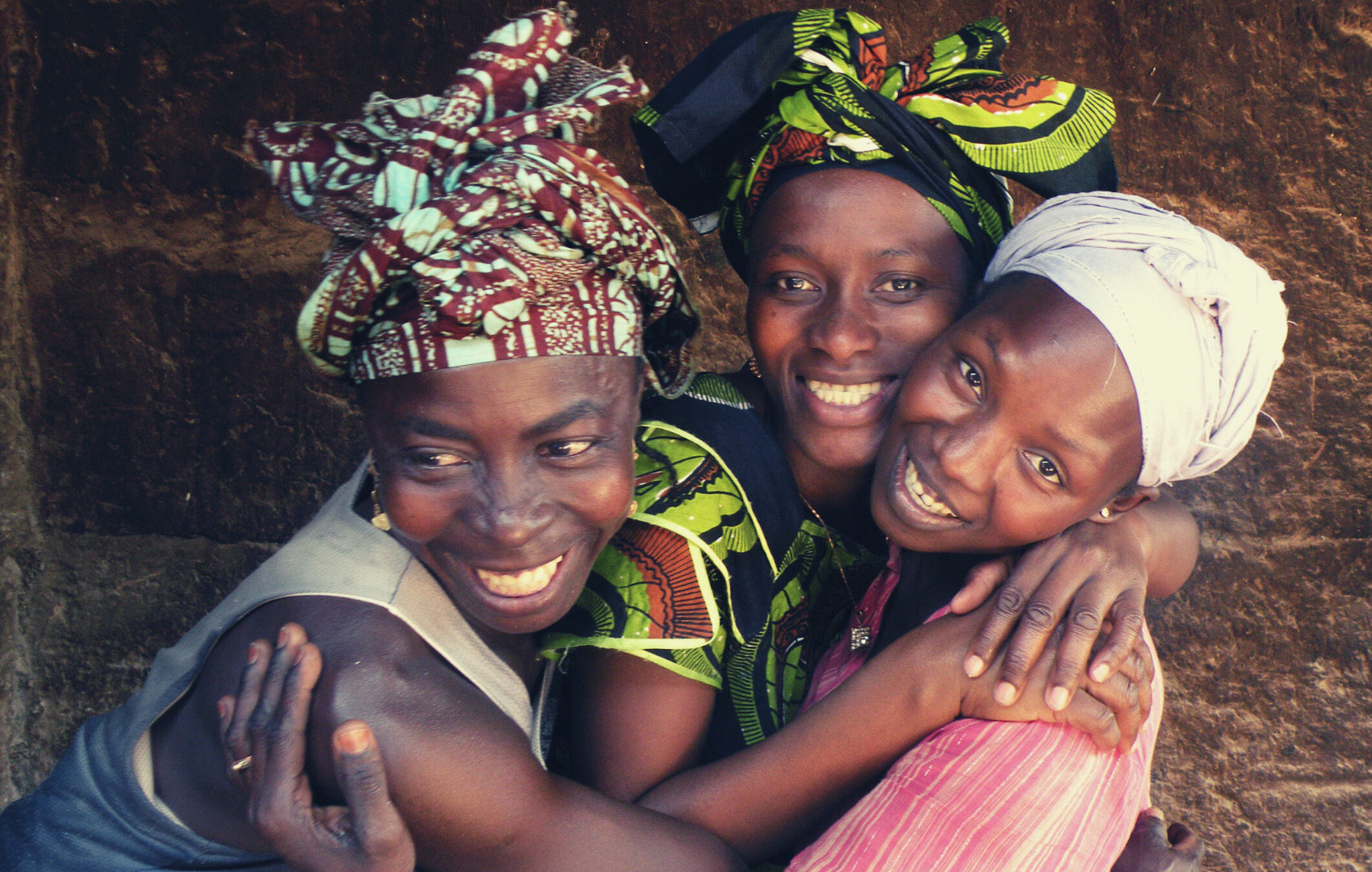
ICCA CONSORTIUM 2020 MEMBERSHIP REVIEW
SUMMARY REPORT
In 2020, the ICCA Consortium held its first ever full Membership Review with 122 Member organisations active at the time.* The review – which will now take place every three years – provided an opportunity for Members to reflect on the identity of the ICCA Consortium as an association, as well as their perceptions, preferences and engagement within our movement-based organisation. It was also an opportunity for Members to guide the evolution and future of the Consortium as a movement-based organisation, including our strategy, regionalisation process, and communications.
As the membership has grown, so too has its diversity, while retaining a strong sense of solidarity and shared values. We hope this summary report
captures both the high level insights of consolidated data as well as the nuances of Members’ experiencesand perspectives.
* The 2020 Membership Review was held from May to October 2020 via online and offline forms in English, Spanish, and French. Of the 152 Member organisations at the time of the Review, 122 Members completed it. A review of the ICCA Consortium’s 400+ Honorary members is planned for 2022.
D E C E M B E R 2 0 2 1
What is a Member?
What is a Member?
Members are organisations that share the mission of the ICCA Consortium and are committed to and have experience with upholding it, regardless of whether they are legally or formally recognised by state governments. In order to become Member, an organisation must submit an application and be accepted by the existing membership in line with the Membership Policy and Procedures.
Members are generally recognised as one of the following:
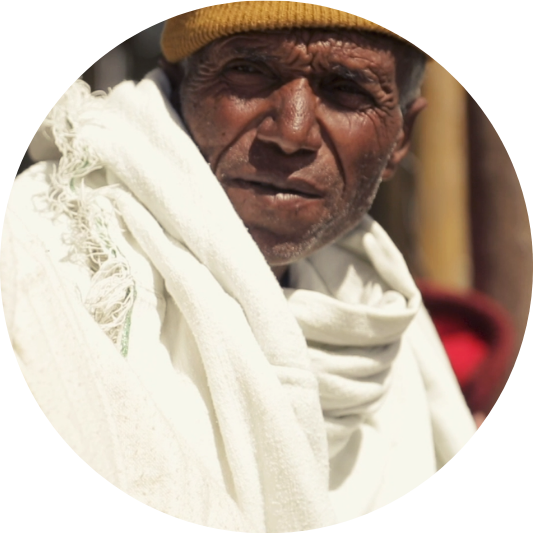
Indigenous peoples’ and local communities’ organisations, federations, networks and
movements concerned with territories of life and operating at any level
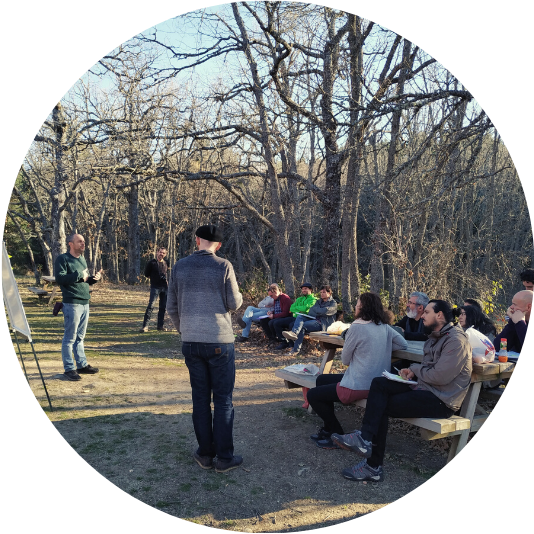
Civil society and non-governmental organisations, networks with mixed composition and nongovernmental research institutions focused primarily at local, national and/or regional levels
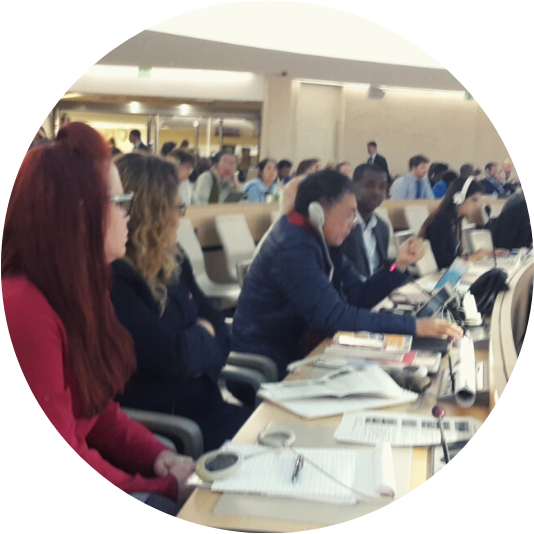
Civil society and non-governmental organisations, networks with mixed
composition and nongovernmental research institutions with a global
scope or operating at the international level only
For-profit corporations and governmental and explicitly partisan entities may not become Members.
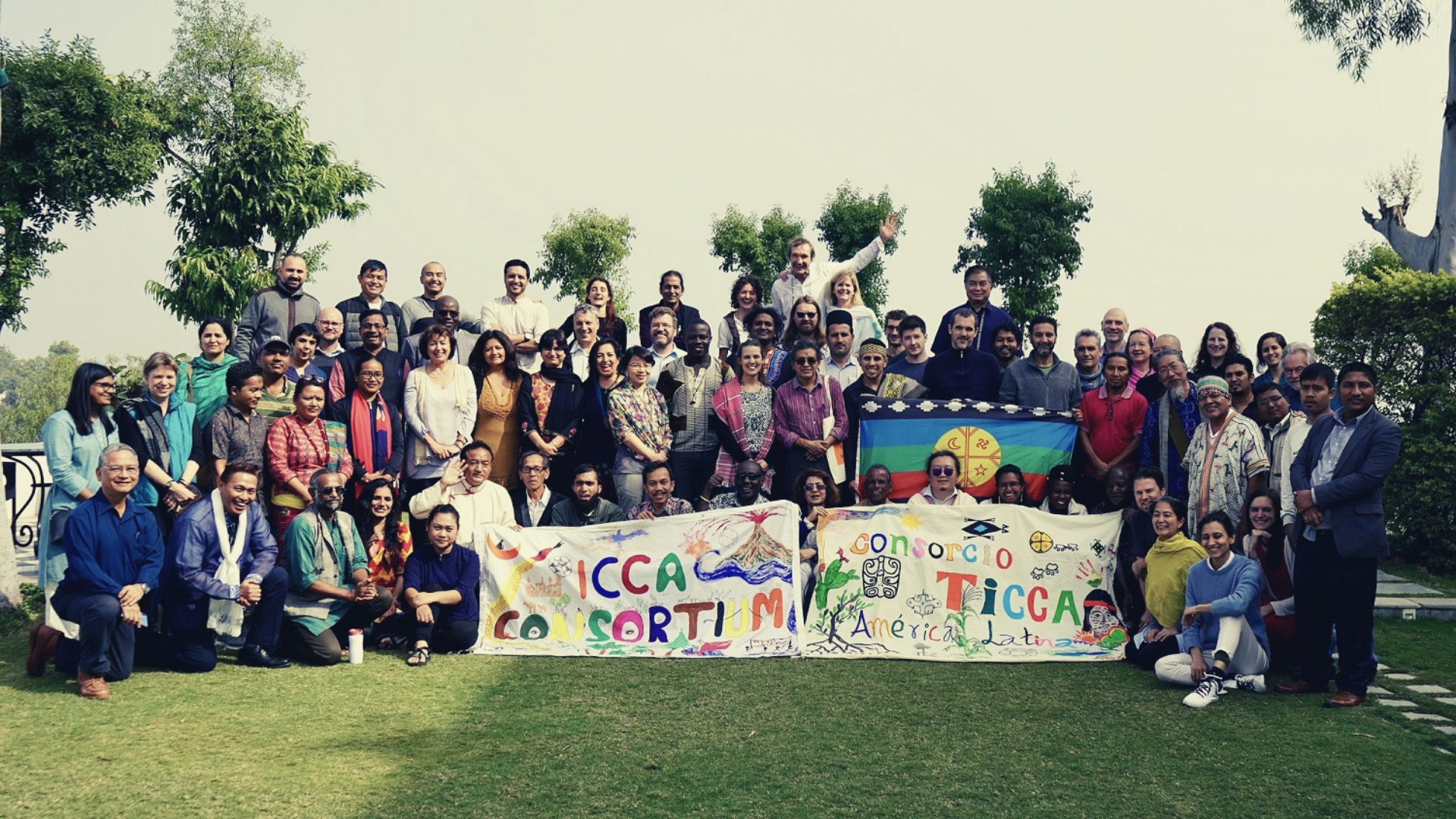
The 2019 General Assembly, Udaipur, India (c) ICCA Consortium
Who are the Members?
Who are the Members?
Among the IPLC organisations,
many have mixed compositions:
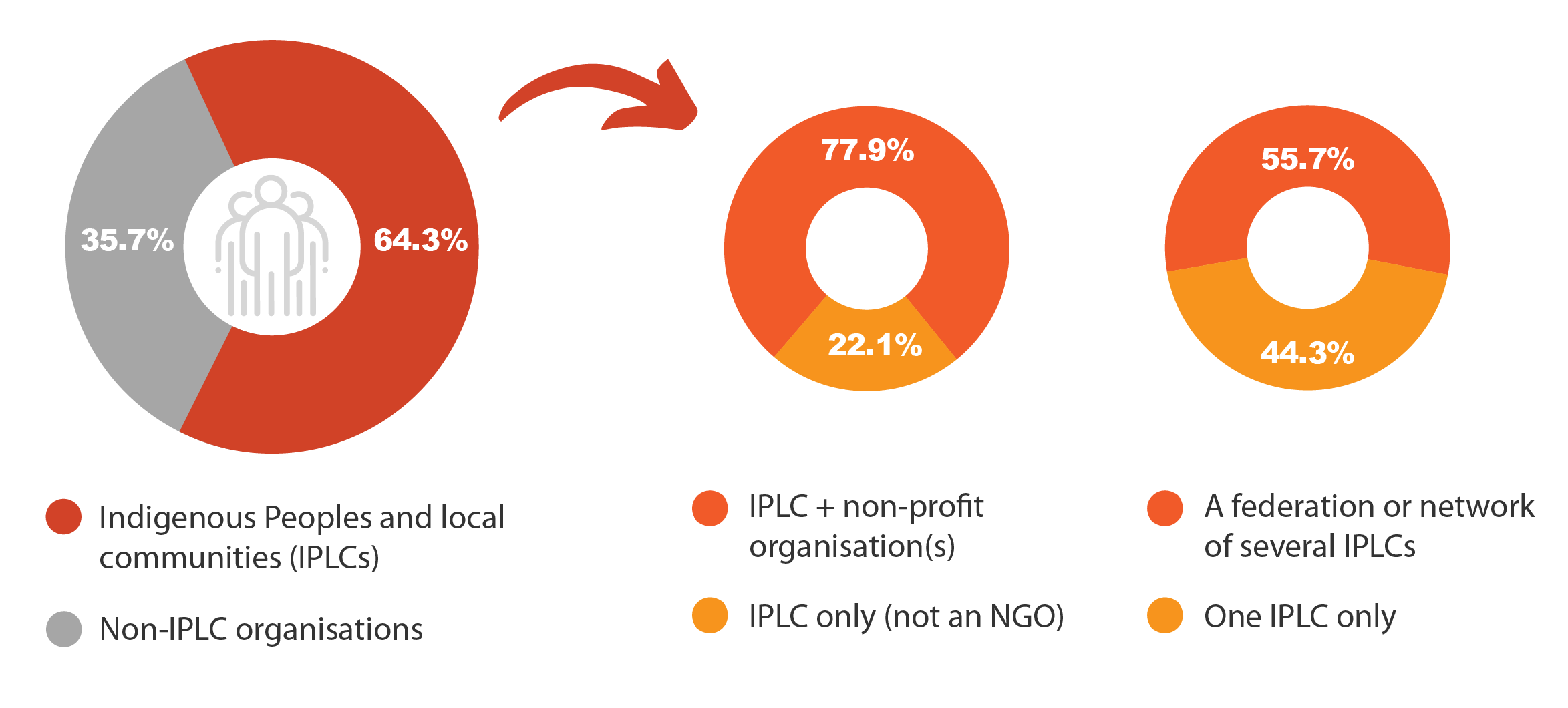
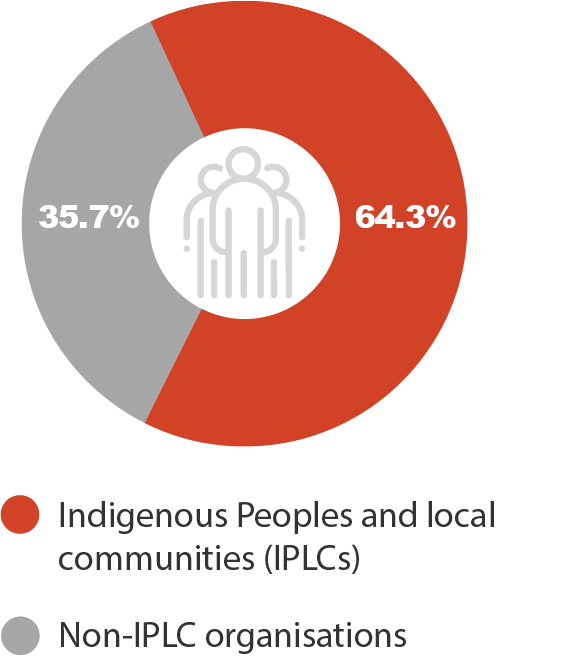
Among the IPLC organisations,
many have mixed compositions:
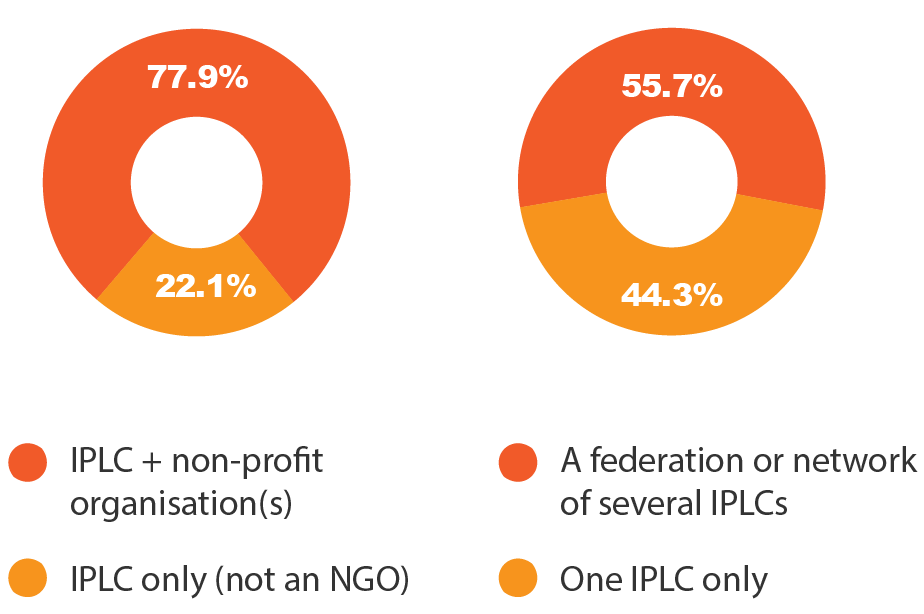
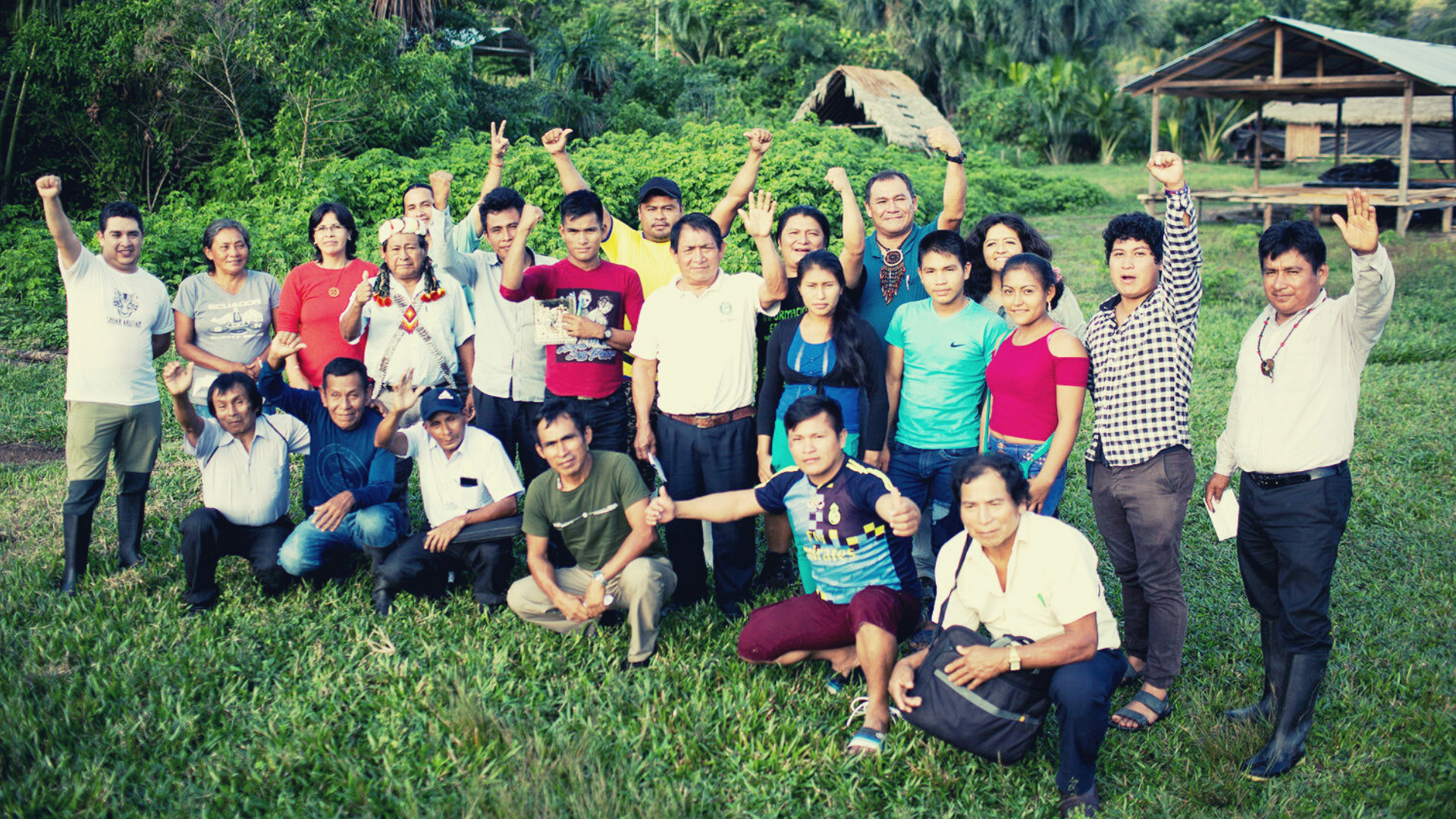
Gathering of the Autonomous Territorial Government of the Wampis Nation and Pueblo Shar Arutam (c) ALDEA
Scale of Work
Most Members work at several scales, primarily at the local and national levels.
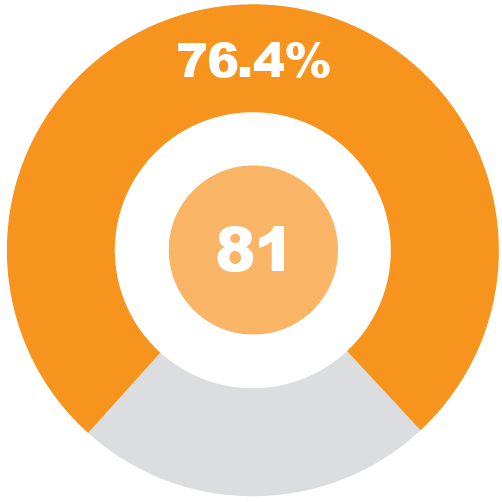
Local
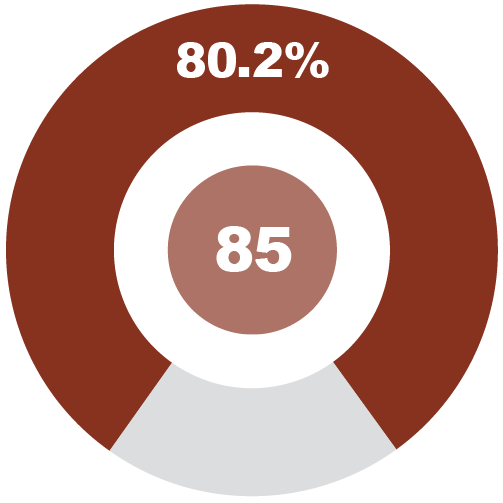
National
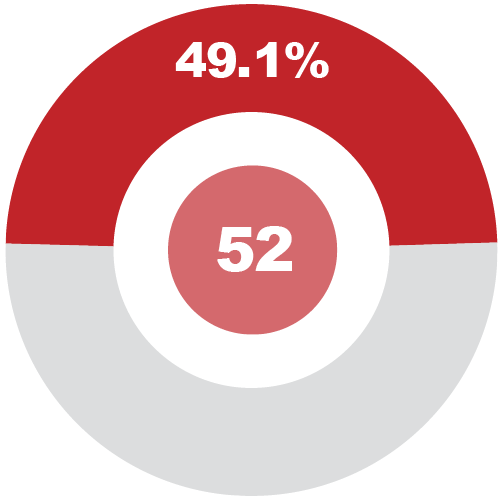
Regional
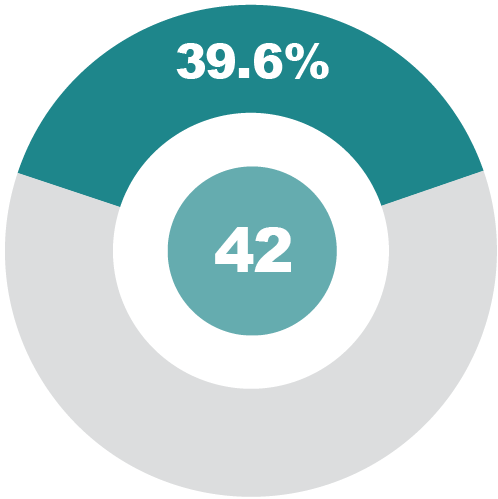
International
The figures represent the number and proportion of Members that selected this option in the review form.
They could select however many scales of work as applicable.
Where do Members live and work?
Where do Members live and work?
Members are based in all populated continents and at least 92 countries, with self-reported territories and areas covering at least 125,656,000 hectares.
Self-reported territories of life among the Members vary widely not just in their size but also in the ecosystems they sustain, ranging from 6 hectares of grasslands in Senegal (AVPE) to 10 million hectares of rainforest in Karen territory in Burma/Myanmar (KESAN) to 100 million hectares of Inuit territory in the Canadian Arctic (Qikiqtaaluk Wildlife Board).
Note: The actual global spatial extent of territories of life is likely much larger than what was reported by Members in the review. For more information about the self-reported and estimated extent of territories of life around the world, refer to the ICCA Registry hosted by UNEP-WCMC and the global spatial analysis produced by WCMC and the ICCA Consortium for the 2021 report on territories of life.
A truly global association…
Members self-identified as working in the following regions:
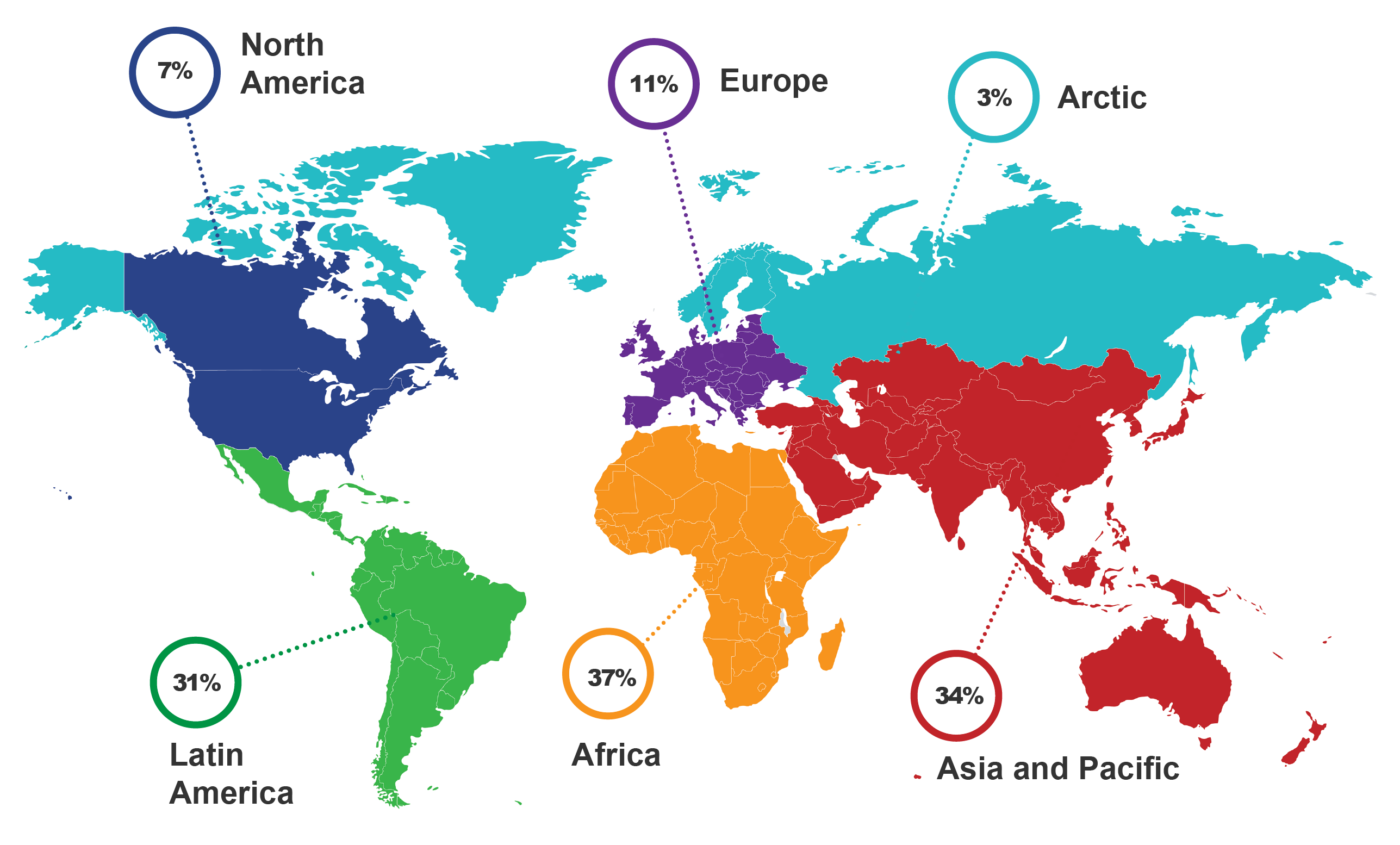
Respondents were encouraged to select more than one region if applicable
17% of Members identified their work as “global” or as occurring in multiple regions
See where Member organisations are registered on our online map
What do the Members do?
What do the Members do?
Key areas of work, skills and capacities of the Members
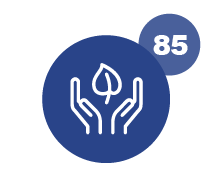
Sustaining territories of life

Documenting and communicating territories of life

Advocacy and legal recognition and support for territories of life

Networking, alliance building and social movements
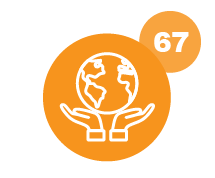
Defending territories of life

Education
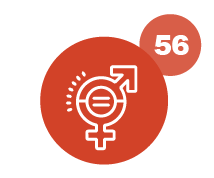
Gender equity
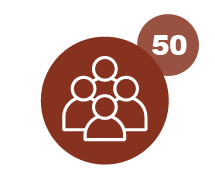
Youth
Key areas of work, skills and capacities of the Members
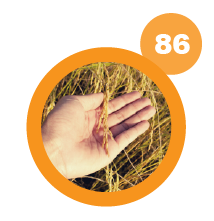
Farming
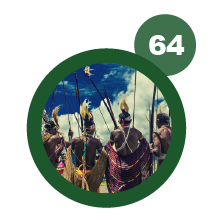
Hunting and gathering

Fishing and aquaculture
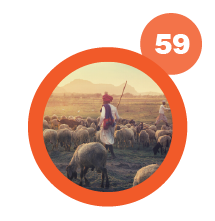
Pastoralism and livestock keeping
Main ecosystems in the Members’ territories
or of the Members’ work
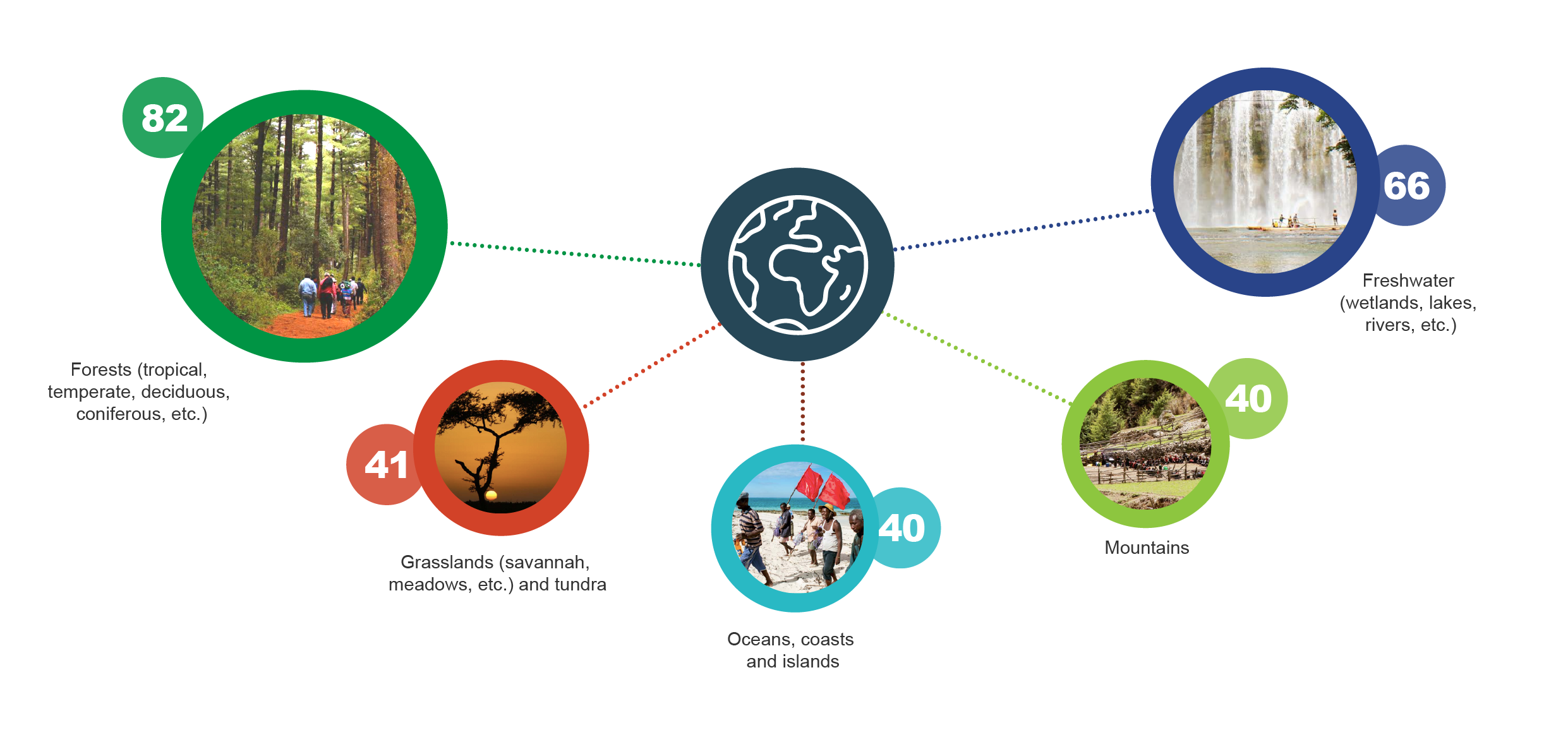
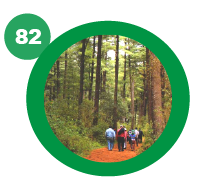
Forests (tropical, temperate, deciduous, coniferous, etc.)
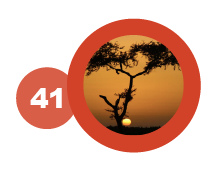
Grasslands (savannah, meadows, etc.) and tundra
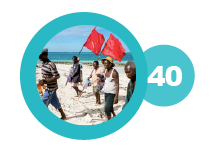
Oceans, coasts and islands
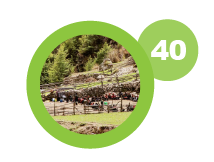
Mountains
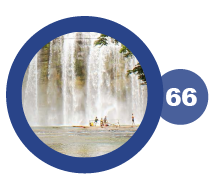
Freshwater (wetlands, lakes, rivers, etc.)
Figures represent the number of Members that selected each option in the review form
How do Members contribute to the association?
How do Members contribute to the association?
Nourishing the ICCA Consortium through experience
Members contribute by conserving and defending their own Territories of life then sharing their experiences, realities, challenges, and best practices with others.
Providing support to other ICCA Consortium Members or ICCAs
This includes:
- broad recognition of ICCAs
- supporting other Members follow the self-strengthening process
- channelling funds and sharing funding opportunities
- networking and sharing information
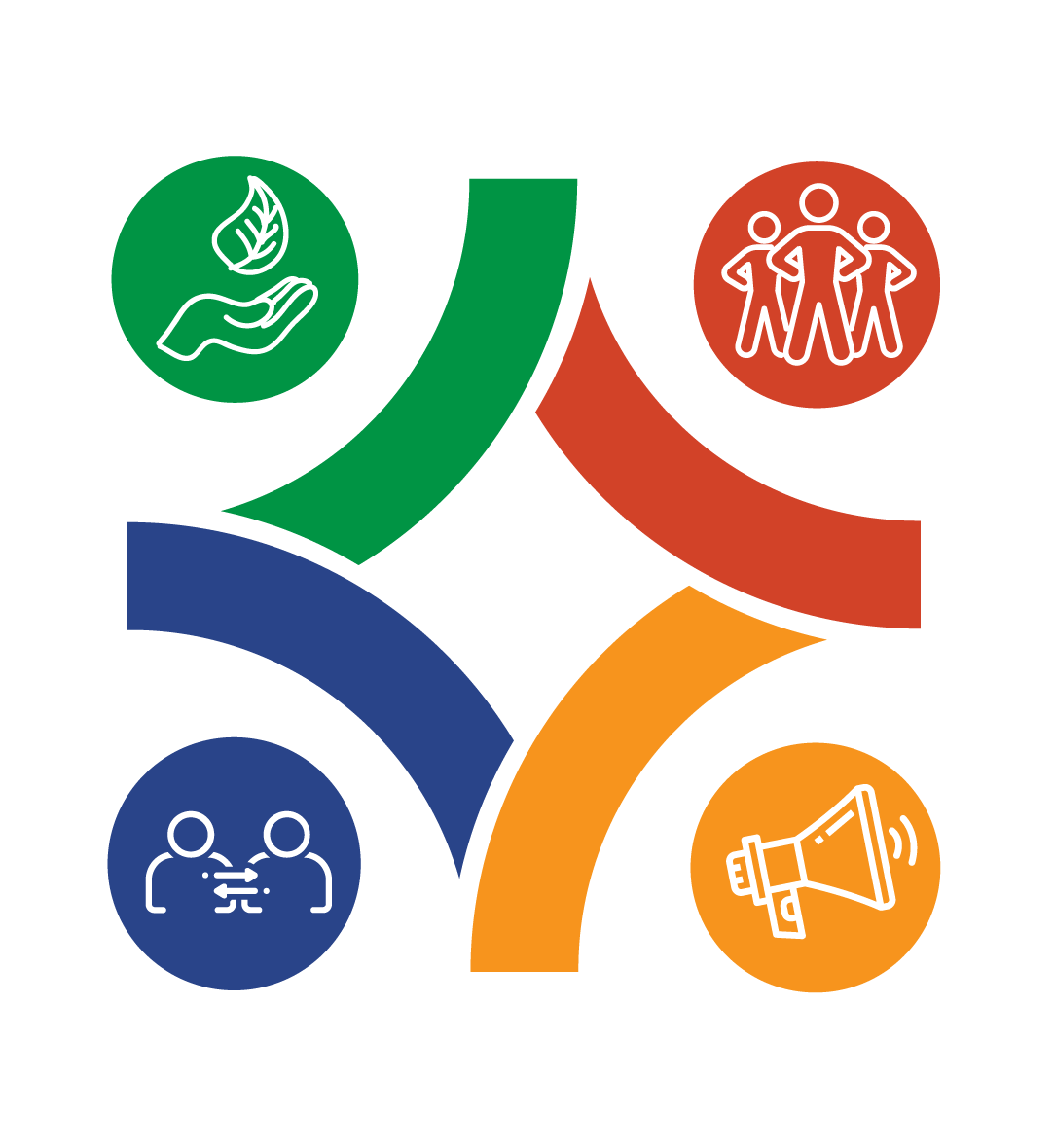
Participating in
institutional life
This includes:
- joining the Council
- chairing a working theme
- acting as regional representatives for the Secretariat
- participate in regionalisation process
- host or facilitate ICCA Consortium gatherings
Shaping narratives
Members actively participate in advocacy at national, regional and international levels. They play a key role in enhancing external relations and improving the understanding of ICCAs in diverse networks outside of the Consortium.

Nourishing the ICCA Consortium through experience
Members contribute by conserving and defending their own Territories of life then sharing their experiences, realities, challenges, and best practices with others.
Providing support to other ICCA Consortium Members or ICCAs
This includes:
- broad recognition of ICCAs
- supporting other Members follow the self-strengthening process
- channelling funds and sharing funding opportunities
- networking and sharing information
Participating in institutional life
This includes:
- joining the Council
- chairing a working theme
- acting as regional representatives for the Secretariat
- participate in regionalisation process
- host or facilitate ICCA Consortium gatherings
Shaping narratives
Members actively participate in advocacy at national, regional and international levels. They play a key role in enhancing external relations and improving the understanding of ICCAs in diverse networks outside of the Consortium.
What are some benefits of being a Member?
What are some benefits of being a Member?
Source of information and guidance
Members shared that the association provides an opportunity to brainstorm, challenge ideas, share and access information, and receive guidance and advice.
Strengthening local initiatives
Members expressed that the association enabled them to lead self-strengthening processes in many different ways.
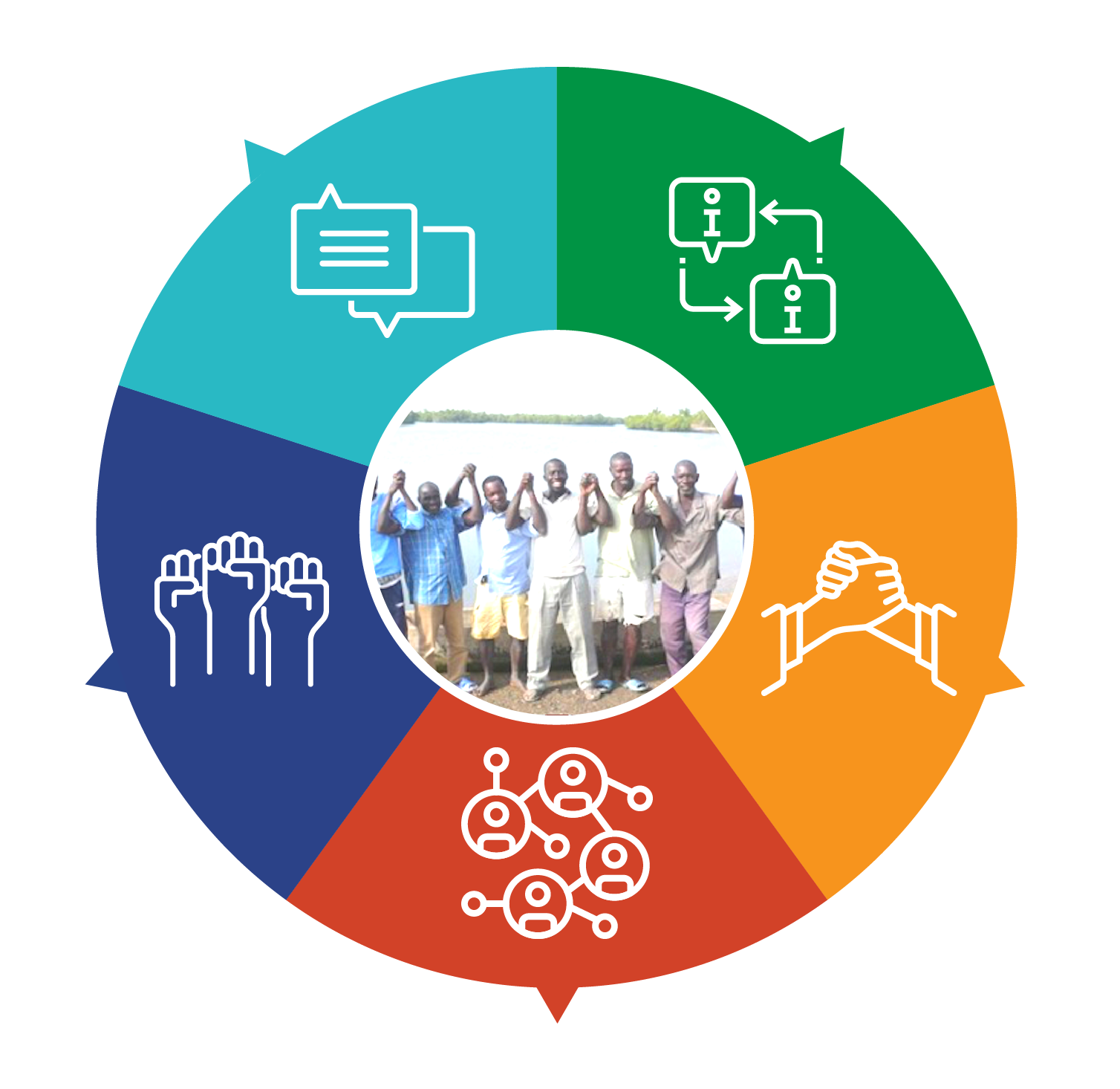
A network of solidarity
The association is a place of solidarity and motivates Members through a sense of “moving forward together”.
Visibility
The association is seen as a gateway to international advocacy and support.
Peer exchange
Over half of the Members mentioned peer learning and exchange as a major benefit of the association. Members can share ideas and learn from others both locally and globally and within and between regions.

Source of information and guidance
Members shared that the association provides an opportunity to brainstorm, challenge ideas, share and access information, and receive guidance and advice.

Peer exchange
Over half of the Members mentioned peer learning and exchange as a major benefit of the association. Members can share ideas and learn from others both locally and globally and within and between regions.

Visibility
The association is seen as a gateway to international advocacy and support.

A network of solidarity
The association is a place of solidarity and motivates Members through a sense of “moving forward together”.

Strengthening local initiatives
Members expressed that the association enabled them to lead self-strengthening processes in many different ways.
Strengthening local initiatives
Members expressed that the association enabled them to lead self-strengthening processes in many different ways.
Visibility
The association is seen as a gateway to international advocacy and support.
Strategies for the future
Strategies
for the
future
Priorities for the ICCA Consortium’s next strategic plan, as defined by Members:

We should be more proactive as a Consortium, rather than reactive to challenges and problems, promoting resilience as well as adaptation.”
KESAN, Indigenous Karen organisation
Being present with and supportive of ICCAs-territories of life and their networks and actions at local and national levels
Compelling communication on ICCAs-territories of life
Being present with and supportive of ICCAs-territories of life and their networks and actions at local and national levels
Being at the forefront of positioning ICCAs-territories of life in global policy

Other specific areas of work:
Gender, strengthening youth and intergenerational exchanges, climate change, struggle against mining industries, pastoralism, and small-scale fisheries
Continuing to work on “documenting territories of life” stream
Continuing to work on “defending territories of life” stream
Continuing to work on “sustaining territories of life” stream


Being present with and supportive of ICCAs-territories of life and their networks and actions at local and national levels

Being at the forefront of positioning ICCAs-territories of life in global policy

Continuing to work on “documenting territories of life” stream

Being present with and supportive of ICCAs-territories of life and their networks and actions at local and national levels

Compelling communication on ICCAs-territories of life
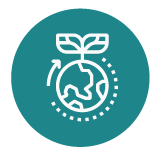
Continuing to work on “sustaining territories of life” stream

Other specific areas of work:
Gender, strengthening youth and intergenerational exchanges, climate change, struggle against mining industries, pastoralism, and small-scale fisheries
Members responded in their own words. Responses were then grouped into the themes above.
Photo credit: Roshni Lodhia
What can be improved within the ICCA Consortium?
- We can continue to reflect on what it means to be a Member, and what it means for the ICCA Consortium to be a membership-based organisation.
- The rights and responsibilities of being a Member should be clear.
- More support can be provided at the local, national and regional scales.
- Internal communication can be improved to be more accessible to Members.
The vision ahead
The vision ahead
In 2020, the ICCA Consortium celebrated its official 10-year anniversary.
Where should the association be ten years from now?
In 2020, the ICCA Consortium celebrated its official 10-year anniversary.
Where should the association be ten years from now?
The ICCA Consortium will be a “proliferating network of vibrant, well-defended territories of life”.
It will continue to be a place for mutual support and encouragement through actions like funding and defending.
Institutional strengthening within the ICCA Consortium will continue.
The association will have a greater and clearer role for communities, as well as more clarity on what it offers and provides to its membership.
In 10 years, territories of life are fully recognised and secured. The ICCA Consortium will continue solid policy work and advocacy for the recognition of territories of life in binding international and national commitments.
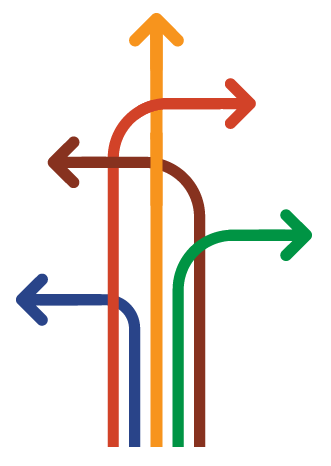
The ICCA Consortium will be at the forefront of communication on territories of life and will “highlight different ways in which ICCAs can achieve a more fair and just world”, thanks to a “powerful storytelling archive and documentation”.
The ICCA Consortium will be the “spokes-organisation” and apply the values of territories of life by promoting “a world where the values of Indigenous communities become a lived reality on the planet”, where the “destruction of the planet is halted through the protection of territories of life and the violations against Indigenous communities stopped”, and have “moved away from competition to cooperation and respect for nature and people”.

The ICCA Consortium will be a “proliferating network of vibrant, well-defended territories of life”.
It will continue to be a place for mutual support and encouragement through actions like funding and defending.

Institutional strengthening within the ICCA Consortium will continue.
The association will have a greater and clearer role for communities, as well as more clarity on what it offers and provides to its membership.

In 10 years, territories of life are fully recognised and secured. The ICCA Consortium will continue solid policy work and advocacy for the recognition of territories of life in binding international and national commitments.

The ICCA Consortium will be at the forefront of communication on territories of life and will “highlight different ways in which ICCAs can achieve a more fair and just world”, thanks to a “powerful storytelling archive and documentation”.

The ICCA Consortium will be the “spokes-organisation” and apply the values of territories of life by promoting “a world where the values of Indigenous communities become a lived reality on the planet”, where the “destruction of the planet is halted through the protection of territories of life and the violations against Indigenous communities stopped”, and have “moved away from competition to cooperation and respect for nature and people”.

Finding ways to capture, nurture, and amplify the spirit and energy of [past] gatherings, which above all depend on the diversity and motivation of the groups that the Consortium is able to bring together, is key.”
Maliasili (global level)

Acceptance of Indigenous knowledge and values in national and international fora, as
natively processed and presented by Indigenous peoples and communities, on par with science, without any need for paternalistic scientific or other external verification.”
Qikiqtaaluk Wildlife Board (Arctic)
Questions for reflection
Questions for reflection
Let’s continue this process of reflection, peer learning and improvement together.
- How well does the summary report reflect your responses and views as a Member organisation?
- How can you further strengthen your contributions to the ICCA Consortium?
- How can the ICCA Consortium better support you as a Member?
- How can you connect more meaningfully with other Members in your region or working on similar
issues, or help strengthen the grassroots membership?
Contact your Regional Coordinator or another member of the Secretariat to:

Share feedback on this summary report

Highlight any key gaps or areas for improvement

Contribute to discussions, debates, reflections, and new ideas

Share feedback on this summary report

Highlight any key gaps or areas for improvement

Contribute to discussions, debates, reflections, and new ideas
Acknowledgments
Thank you to all ICCA Consortium Members who responded to the 2020 Membership Review and contributed to the development of this summary report, and for your constant and courageous work for territories of life around the world.
The 2020 Membership Review was developed and guided by the ICCA Consortium’s Membership Committee with support from the Secretariat.
Citation: ICCA Consortium, 2021. 2020 Membership Review: summary report. ICCA Consortium: worldwide.
Contact: info@iccaconsortium.org
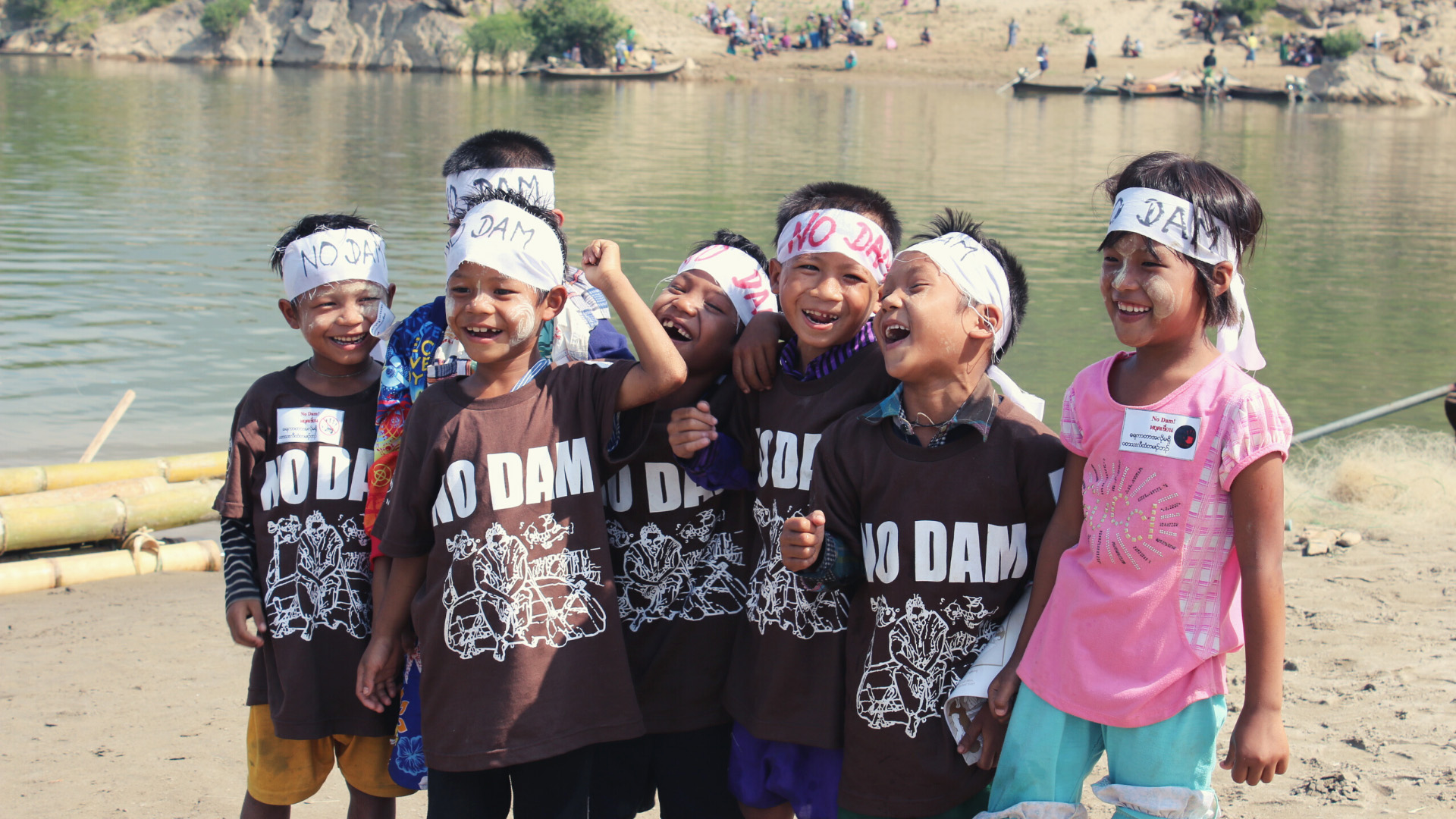
(c) KESAN